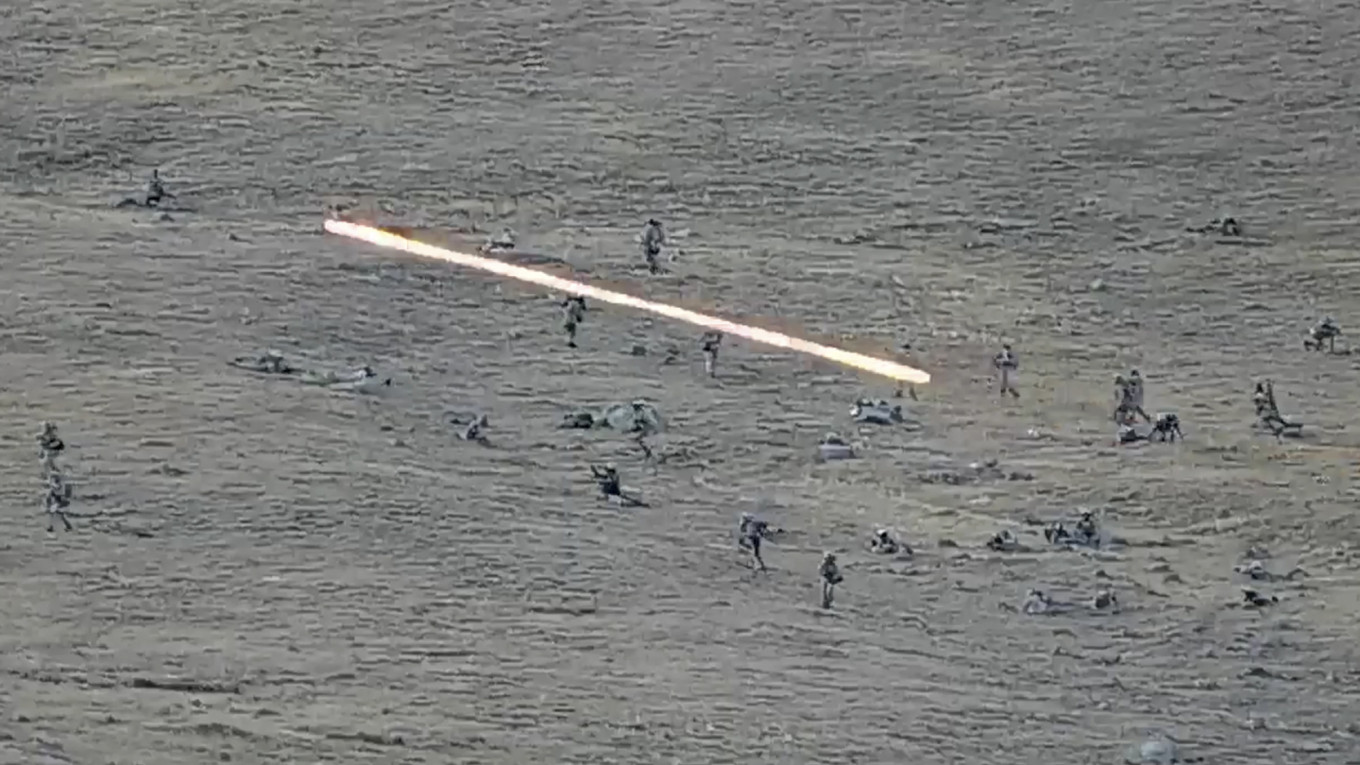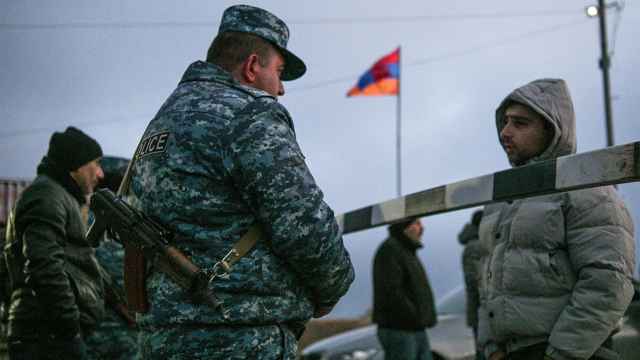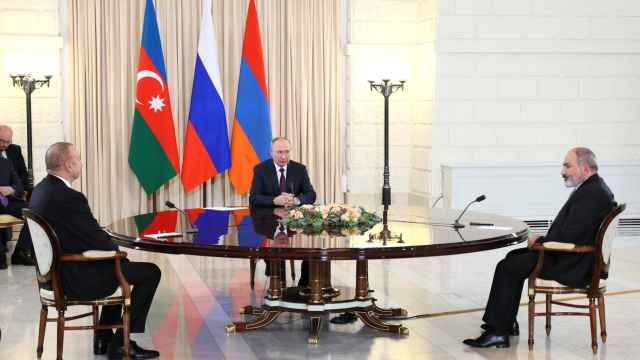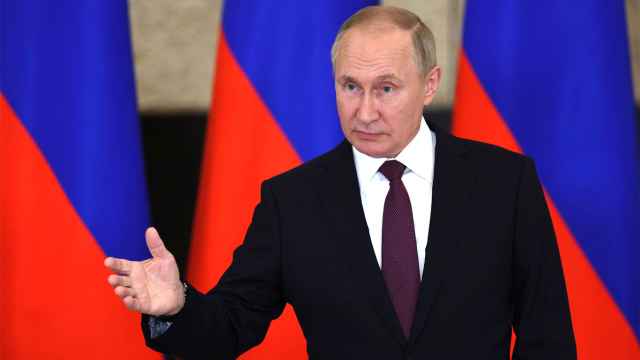A military alliance of ex-Soviet republics led by Russia has been deployed to Armenia following deadly border clashes with Azerbaijan, the organization said early Wednesday.
The shootout between the neighbors locked in a decades-old conflict erupted after midnight Tuesday, killing at least 49 Armenian and 50 Azerbaijani troops.
Armenia appealed for Russia’s assistance under a mutual cooperation treaty, as well as from the Moscow-led Collective Security Treaty Organization (CSTO), which is currently chaired by Yerevan.
The Kremlin declined to comment on the request, saying only that President Vladimir Putin is “taking every effort to help de-escalate tensions.”
The CSTO said in a statement that its members decided at an extraordinary council session to dispatch a monitoring mission to Armenia.
The mission will be tasked with “assessing the current situation” and “drafting proposals for the de-escalation of tensions” between Armenia and Azerbaijan.
A detailed report is also expected ahead of the CSTO’s council session later this fall, the organization said.
It named CSTO Secretary General Stanislav Zas and chief of the CSTO joint staff Anatoly Sidorov as heads of the mission, which will also include representatives from member states Russia, Belarus, Armenia, Kazakhstan, Kyrgyzstan and Tajikistan.
The flare-up that regional foes Armenia and Azerbaijan blamed on each other is the latest in a series of reported shootouts along their shared border since the end of the 2020 war over the disputed region of Nagorno-Karabakh.
The deadly fighting came as Yerevan's closest ally Moscow — which has thousands of peacekeepers in the region — was distracted by its costly six-month invasion of Ukraine.
Moscow’s invasion has fueled rumors that Russia was withdrawing at least part of its peacekeepers into Ukraine and contributed to an escalation of hostilities in Nagorno-Karabakh, where ceasefire violations are common.
Experts warn that the Kremlin’s war in Ukraine has weakened Russia and raised the chances of further escalation between Armenia and Azerbaijan.
A Message from The Moscow Times:
Dear readers,
We are facing unprecedented challenges. Russia's Prosecutor General's Office has designated The Moscow Times as an "undesirable" organization, criminalizing our work and putting our staff at risk of prosecution. This follows our earlier unjust labeling as a "foreign agent."
These actions are direct attempts to silence independent journalism in Russia. The authorities claim our work "discredits the decisions of the Russian leadership." We see things differently: we strive to provide accurate, unbiased reporting on Russia.
We, the journalists of The Moscow Times, refuse to be silenced. But to continue our work, we need your help.
Your support, no matter how small, makes a world of difference. If you can, please support us monthly starting from just $2. It's quick to set up, and every contribution makes a significant impact.
By supporting The Moscow Times, you're defending open, independent journalism in the face of repression. Thank you for standing with us.
Remind me later.






